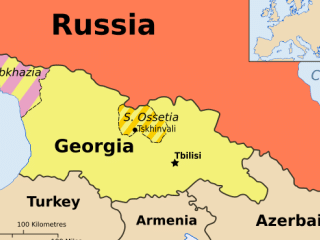On November 21, Georgia held its second and last round of the parliamentary elections. Opposition parties refused to participate in the second round of these elections because they viewed the first round as illegitimate and unfair. Leaving the way open for a one-party runoff where the Georgian Dream (GD) won all thirty seats allocated through the majoritarian system. Giving the GD the possibility to form a single-party government with 90 deputies in parliament, which will continue the one-party rule in Georgia.
Opposition parties and the EU
For the first time in Georgia’s history, the voters were given a chance to end Georgia’s tradition of one-party rule and achieve a coalition government, that represents all citizens. This was the expectation not only of the opposition parties and their supporters but also of civil society organisations. Unfortunately, Georgia missed that chance.
At the moment, the opposition parties refuse to enter parliament and announced that they will hold mass protests, demanding new elections. Nonetheless, the opposition parties only consider two scenarios: new elections or a continuation of the rule of GD, which is still connected to Bidzina Ivanishvili.
Even though the runoff where not competitive, civil society organisations observed that the GD mobilized activists at polling stations to exercise psychological pressure on voters and obstruct the activities of election observers. Once, again observers noted cases of vote-buying and multiple voting.
Georgia is still committed – at least officially – to the path of European integration. This gives the EU strong leverage to critically assess the actions of the Georgian government and its failures in the transition process toward democracy.
Sources: Carnegieeurope | RFERL | JAM News
Photo: Flickr



